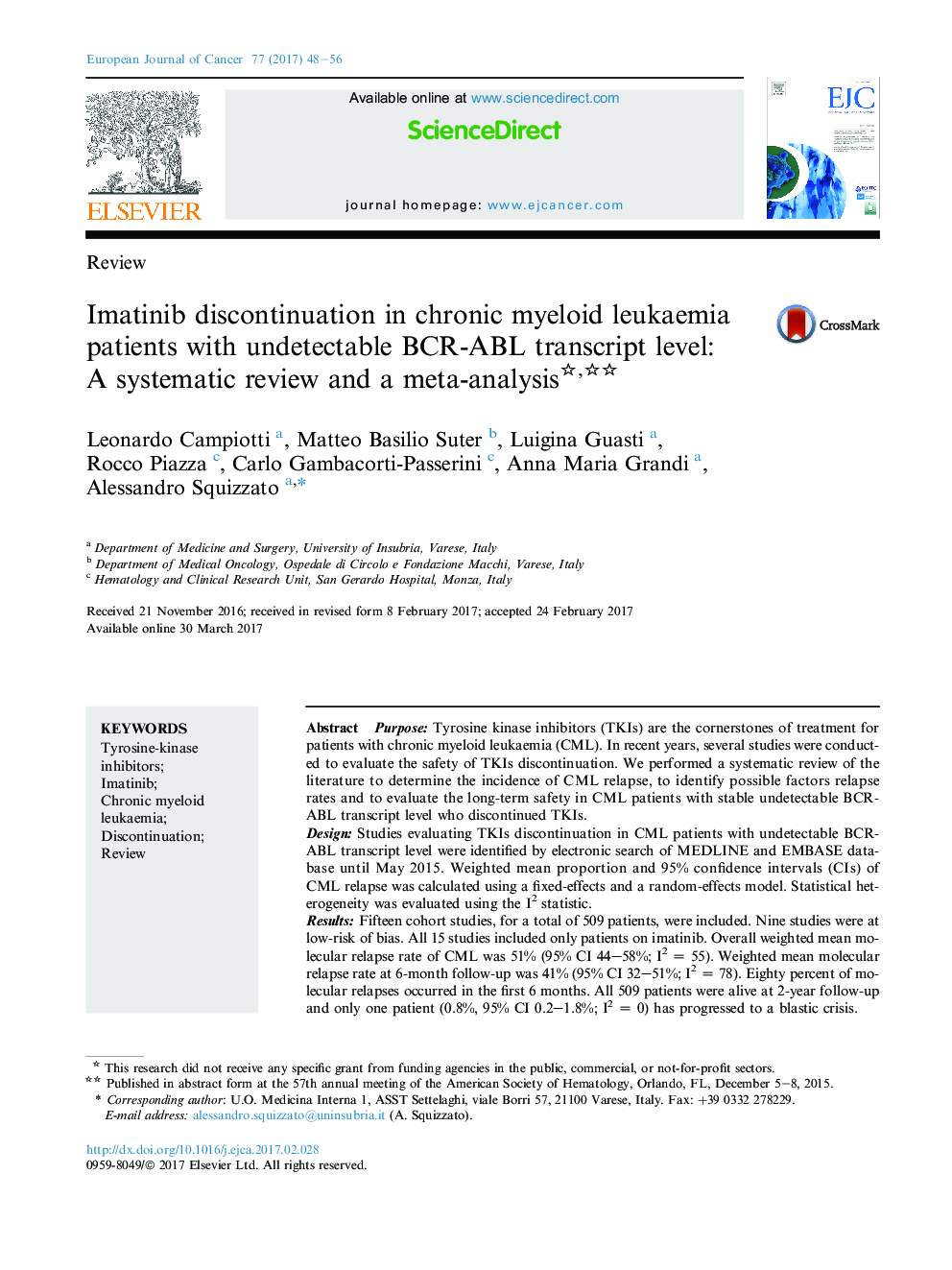| Article ID | Journal | Published Year | Pages | File Type |
|---|---|---|---|---|
| 5526621 | European Journal of Cancer | 2017 | 9 Pages |
â¢Imatinib discontinuation in chronic myeloid leukaemia patients in prolonged complete molecular remission is feasible and safe.â¢Duration of imatinib therapy and of complete molecular remission was both inversely related to relapse rate after discontinuation.â¢Most of the relapse happened in the first six months.â¢Almost all relapsing patients experienced a new response with imatinib rechallenge.
PurposeTyrosine kinase inhibitors (TKIs) are the cornerstones of treatment for patients with chronic myeloid leukaemia (CML). In recent years, several studies were conducted to evaluate the safety of TKIs discontinuation. We performed a systematic review of the literature to determine the incidence of CML relapse, to identify possible factors relapse rates and to evaluate the long-term safety in CML patients with stable undetectable BCR-ABL transcript level who discontinued TKIs.DesignStudies evaluating TKIs discontinuation in CML patients with undetectable BCR-ABL transcript level were identified by electronic search of MEDLINE and EMBASE database until May 2015. Weighted mean proportion and 95% confidence intervals (CIs) of CML relapse was calculated using a fixed-effects and a random-effects model. Statistical heterogeneity was evaluated using the I2 statistic.ResultsFifteen cohort studies, for a total of 509 patients, were included. Nine studies were at low-risk of bias. All 15 studies included only patients on imatinib. Overall weighted mean molecular relapse rate of CML was 51% (95% CI 44-58%; I2 = 55). Weighted mean molecular relapse rate at 6-month follow-up was 41% (95% CI 32-51%; I2 = 78). Eighty percent of molecular relapses occurred in the first 6 months. All 509 patients were alive at 2-year follow-up and only one patient (0.8%, 95% CI 0.2-1.8%; I2 = 0) has progressed to a blastic crisis.ConclusionsOur findings suggest that imatinib discontinuation is feasible for the majority of CML patients with stable undetectable BCR-ABL transcript level. Approximately 50% of patients remain therapy-free after imatinib discontinuation. Restarting TKIs therapy was followed by a very high rate of molecular response, with no deaths 2 years after discontinuation.
